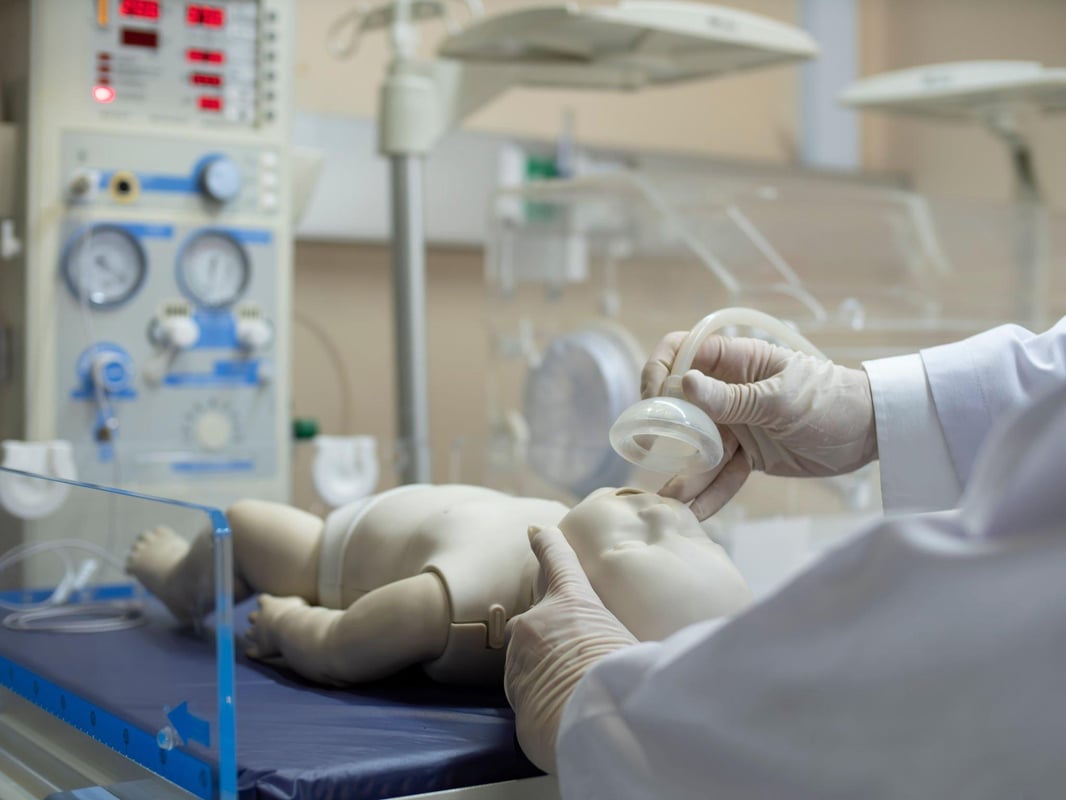
Financial aid (may be available)

Financial aid (may be available)

Financial aid (may be available)

Financial aid (may be available)
No cost info
$276 total
$2,075 total
$410 total
$365 total
$150 total
No cost info
$285 total
No cost info
$150 total
If you're interested in Pediatric Advanced Life Support (PALS) and are looking for classes near New York, you're in the right place. This blog post will guide you through PALS, its training requirements, what to look for in a class, and what to expect from day-to-day training. We will also cover the certification process, how to find related jobs, and what other classes you can take after becoming PALS-certified.

Pediatric Advanced Life Support (PALS) is a systematic approach to pediatric assessment by healthcare providers designed to decrease mortality rates in critically ill children. The PALS course focuses on a systematic approach to pediatric assessment, basic life support, PALS treatment algorithms, and effective resuscitation team dynamics.
To enroll in a PALS class, you should have a basic understanding of:
Basic life support (BLS) skills
Primary and secondary assessments
PALS pharmacology
Basic ECG rhythm identification
These prerequisites ensure that you can fully participate in the class and gain the maximum benefit from the training provided.
When looking for a PALS class, consider the following:
Accreditation: Ensure the course is accredited by the American Heart Association (AHA) or another reputable organization.
Course content: The class should cover all aspects of the PALS course outline.
Course duration: While this can vary, a typical PALS course lasts two days.
Class size: Smaller class sizes may offer more personalized instruction.
A typical day in a PALS class might involve:
Lectures and discussions on pediatric assessment, effective resuscitation, and team dynamics.
Hands-on practice in applying PALS treatment algorithms.
Simulation of pediatric emergencies to test your understanding and application of PALS.
The PALS certification process typically involves:
Completion of the PALS course.
Passing a written exam at the end of the course.
Demonstration of PALS skills in a simulated pediatric emergency.
You will receive your PALS certification once you pass the written exam and the skills test!
After becoming PALS certified, you can look for jobs in settings where pediatric emergencies might occur, such as:
Hospitals
Emergency medical services
Intensive care units
Private pediatric practices
After getting PALS certified, you might consider taking further courses to enhance your skills. These could include:
Advanced Cardiac Life Support (ACLS)
Neonatal Resuscitation Program (NRP)
Emergency Nursing Pediatric Course (ENPC)
PALS certification is not just a document; it's proof of your commitment to saving lives, especially those of children. It equips healthcare providers with the skills to effectively respond to respiratory, shock, and cardiac emergencies.
Recertification is necessary every two years. This ensures that PALS providers are always updated with the latest guidelines and developments in pediatric care.
There are pros and cons to both online and in-person PALS classes. Online classes offer flexibility and convenience, while in-person classes provide hands-on practice and direct feedback from instructors.
Useful PALS study resources include the PALS Provider Manual and the AHAs online resources. Practice exams, flashcards, and scenario simulations can also be very helpful.
PALS certification can be rewarding, opening up new career opportunities while enhancing your skills. Remember, the goal is not just to get certified but to acquire the knowledge and skills necessary to save children's lives. Whether you're a medical professional looking to specialize in pediatric care or someone looking to enhance your medical knowledge, PALS certification is an excellent step forward.
For more information on healthcare-related vocational training, check out these posts on how to become a certified medication aide in New York and how to become a psychiatric technician in New York.
Dreambound has put together numerous guides to help you navigate the certification process in this field, tailored for various cities. For insights into the process or requirements in other states, see some of our additional guides below.
Thinking about all of the factors involved in making a career shift? Take a look at some of the guides we've written to help you in your journey.
Dreambound's platform allows prospective students to find the right educational program for them through searching, filtering, and connecting with our extensive selection of career & technical education partners.
Dreambound has over 70 programs across healthcare, technology, business, and industrial trades. This includes programs such as Medical Billing, Cybersecurity, and welding.
Some of our schools offer financial aid for those who qualify. Many others offer payment plans, where you can pay the cost of class over time.
Yes, Dreambound offers many online programs. On Dreambound's search, you can filter by online, in-person, and hybrid (part online, part in-person).
Dreambound is completely free for you to use! We are supported by schools and organizations who pay to advertise on our website, so we can offer all of our career resources for free.